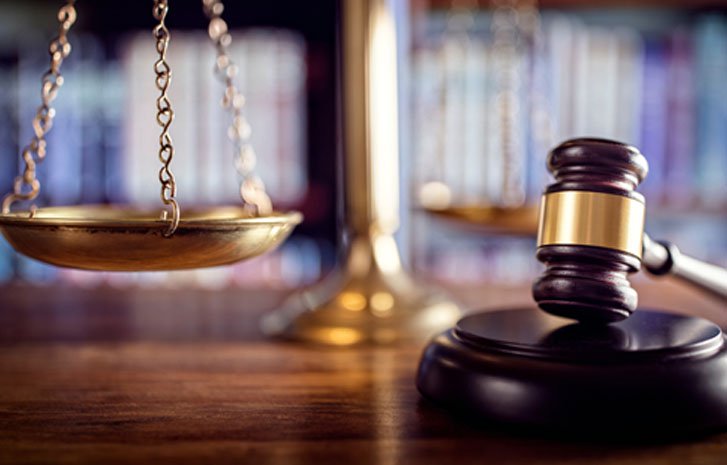Faced with hundreds of pending appeals from the various election petitions tribunals nationwide, the President of the Court of Appeal (PCA), Justice Zainab Bulkachuwa, has cancelled the 2019 annual vacation for justices of the Court of Appeal.
She appealed to the justices to make the sacrifice so that all the undecided cases arising from the conduct of the 2019 general elections can be concluded within the timeframe allowed by law for them to be heard and concluded.
In the tradition of the court, the justices were to be on the annual vacation between July and October this year.
But the PCA said that the Appeal Court would not meet the deadline set for the conclusion of the election petitions appeals if the judges were off the courts during the three-month break.
Bulkachuwa allowed 15-day holiday for justices with serious medical cases and pressing family issues.
Her directives were contained in a statement issued yesterday by the media officer of the Court of Appeal, Saadatu Kachalla.
Kachalla said that Justice Bulkachuwa cancelled the vacation due to “’the enormous petitions the court is faced with.”
“We have to forfeit our annual vacation to enable us entertain and determine all appeals arising from the various election petitions tribunals transmitted to the court,” she quoted Bulkachuwa as saying.
In a two-page circular she signed and transmitted to all the justices of the appellate court on July 2, 2019, Justice Bulkachuwa said that since the appeals were time bound, and would arise within the period of the court’s vacation from July to October, the need, therefore, arises for them to be heard and determined within the said period.
To enable the court meet the target, Bulkachuwa directed the presiding justices of the various divisions of the Appeal Court to draw up a roaster in consultation with the president to allow the justices with medical appointments or other pressing family issues to travel for not more than 15 days within the period.
The roaster, she added should be arranged in such a manner that at any given time there is a three-member panel on ground in every division to hear and determine appeals.
Bulkachuwa stated that in divisions with three justices, only one justice can travel at a time and the office of the president of the Court of Appeal, must be immediately notified to form a panel in that justice’s absence should the need arises.
According to her, appeals arising from the national and state assemblies’ elections would be heard by a local panel of three members except where it is controversial, the president will constitute and send another panel to entertain it.
On the governorship appeals, Bulkachuwa instructed that it should be heard by a five-member panel to be empanelled by the president. She directed the presiding justices to notify her as soon as appeals from the governorship elections were filed to ensure their speedy determination.
Already, the Appeal Court has determined 1,769 appeals and disposed off 3,517 motions between January and April 2019.
This was contained in the summary of cases in the various divisions of the Court of Appeal prepared by the head, Legal Services Unit, Mrs. Adaeze Oby Aziwe
In the document, a total of 2,397 appeals and 5,120 motions were filed during the period under review.
Similarly, reports from the office of the DCR, Court of Appeal, Election Petition Tribunal, Mrs. Rabi Abdulazeez Yakubu, said that a total of 800 petitions were filed as at June 17, 2019.
A breakdown of the figure shows that, state houses of assembly recorded the highest figure of 415, Senate 105, House of Representative 214, governorship 62 and presidential four petitions.
The fact sheets emanating from the 77 election petitions tribunals set up by Bulkachuwa showed that as at April 23, 2019, 65 petitions were either dismissed or struck out while 735 petitions are pending.
Lawyers, Others Differ Over Cancellation Of Justices’ Vacation
When LEADERSHIP sought the views of some prominent lawyers on the PCA’s directive, they expressed divergent views on it.
A professor of law and former attorney-general and commissioner for Justice in Abia State, Chief Awa Kalu (SAN), said that the justices deserve the break while Mr. Ahmed Raji (SAN) commended Justice Bulkachuwa for taking the step to ensure that all the pending cases were dispensed with.
Kalu said: ‘’The trend has always been that the trial court should not be shut down completely. There will always be a vacation judge to attend to cases that cannot wait.
“Cases that cannot wait are always before the vacation judge. The judges need the rest because of their workload. Their work is not the usual 8:00 am to 5:00 pm like any other workers. They work in and outside the court, so, the two months’ vacation is not too much for them.’’
On his part, Raji commended leadership of the Supreme Court and the Court of Appeal for cancelling the judges’ vacation.
He said: ‘’It is a welcome development. What it means is that urgent cases that cannot wait will be heard by the courts during the vacation. I must commend the leadership of the courts for the steps taken to ensure that pending cases, especially, pre-election and post-election matters are decided within time.’’
A human rights advocacy group, Access 2 Justice (A2J), called on the National Judicial Council (NJC) to limit the annual vacation period for judges to nine weeks instead of the 12 weeks period that is currently in practice.
The group said that the 12-weeks cumulative period vacation being enjoyed annually by the Nigerian judges was too lengthy, stressing that it was part of the reasons why cases were delayed in court.
In a statement signed by the group’s deputy director, Dr. Adenike Aiyedun titled: “Superior Court Judges, recess too lengthy – need for review and reform to reduce chronic court delays”, noted that while some countries had abolished long vacation for judges by splitting and spreading judges’ vacation to ensure that the courts were never closed, Nigerian judges still enjoy a long annual vacation of two months apart from taking two weeks at each of Easter and Christmas periods.
A2J said that while it was not oblivious of the enormity of the challenges faced by the judges in the course of discharging their duties, there was no justification for the closure of the courts for two months on account of their long annual vacation, adding that the Nigerian (superior court) judiciary enjoys one of the lengthiest vacation systems in the world.
He remarked that Nigerian judiciary has some of the most intractable problems of court delays among its peers around the world, adding that any efforts to reduce prolonged trials must address the availability of judges to sit in the courts at all times.
A constitutional lawyer and human rights activist, Chief Mike Ozekhome (SAN) suggested that justices of the Supreme Court should change the practice direction and constitute a panel of justices to hear urgent appeals during vacation.
He noted that certain matters expire with time and justice would not be guaranteed of appeals from such cases if not heard by the Supreme Court.
“The one I worry about is the Supreme Court going on vacation because the lower courts usually have provisions for vacation judges. We usually have vacation judges, two in Lagos, two in Abuja and two in PortHarcourt.
“What worries me about Supreme Court going on vacation is that there are cases which expire within a period of time. For example, pre-election matters which should be decided in late July and August. Now when the Supreme Court goes on vacation by next week, it means that due to no fault of the litigants, some of these matters would have expired before they resume,” he said.
According to him, the provision in the 4th Alteration, Section 395(9) is like the Rock of Gibraltar that cannot be moved at all.
“There is no way they can bury the constitutional provision to accommodate a case. Then in such a case, justice will not appear to have been done.
“This means that the Supreme Court should begin to think of changing the practice direction. Since they have about 15-27 justices, they should make a practice direction that when they are on vacation, at least a panel of five justices should sit back and treat urgent cases. The Supreme Court being the highest court of the land should not be left vacant like that, it is dangerous for our judicial system,” Ozekhome said.
The executive director of the Socio-Economic Rights and Accountability Project (SERAP), Mumini Adetokunbo , said that judges work round the clock from Mondays to Fridays, adding that many of them have a very full docket.
Adetokunbo stated that they need to have a breathing space and be refreshed when they come back to work.
“I don’t see anything wrong about it, it has been the practice from the colonial era, when judges especially of the high court go on vacation.
“The vacation judges are there to deal with urgent matters and any lawyer who wants his matter heard during vacation will make an application before the vacation judge by canvassing the urgency of the case.
When asked about the Supreme Court that has no provision for vacation justices, Adetokunbo said that cases do not originate from the apex court and that all appeals can wait till after vacation.
In a sharp contrast, the executive director of Civil Society Legislative Action Centre (CISLAC), Awwal Musa Rafsanjani, said that judicial officers and legislators should select a period to proceed on leave like other public servants.
Rafsanjani who is also the country representative for Transparency International (TI) said: “This is part of the restructuring we are talking about. When we canvass for restructuring, we are talking about restructuring the first line. For instance, you cannot talk about access to justice; you cannot talk about quality delivery of justice when a whole court is shut down and go on vacation for almost two months. What should happen is that individual judges and justices should select when they will go on leave so that their absence will not delay justice. The idea of judiciary going on holidays is not good for the justice system’ justice delay is justice denied,” he stated.







